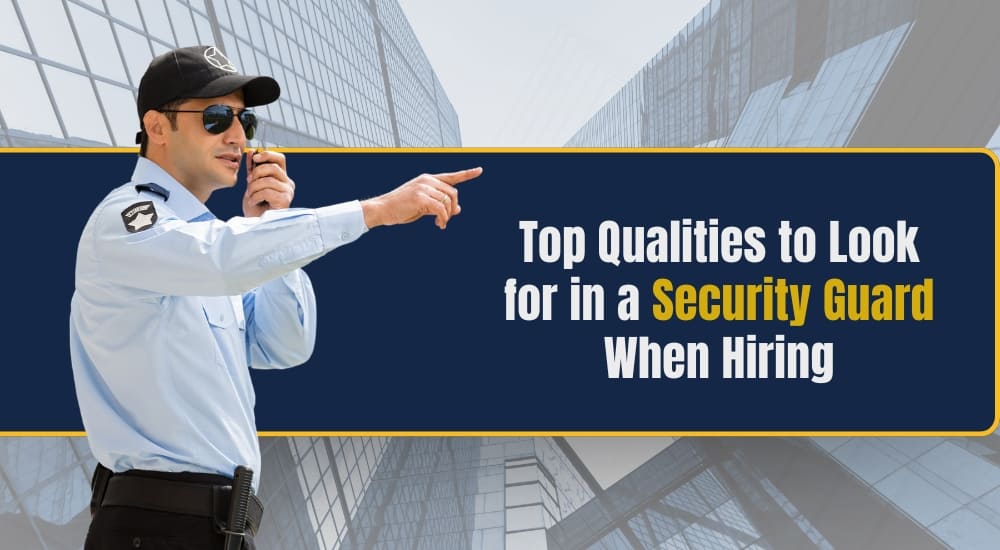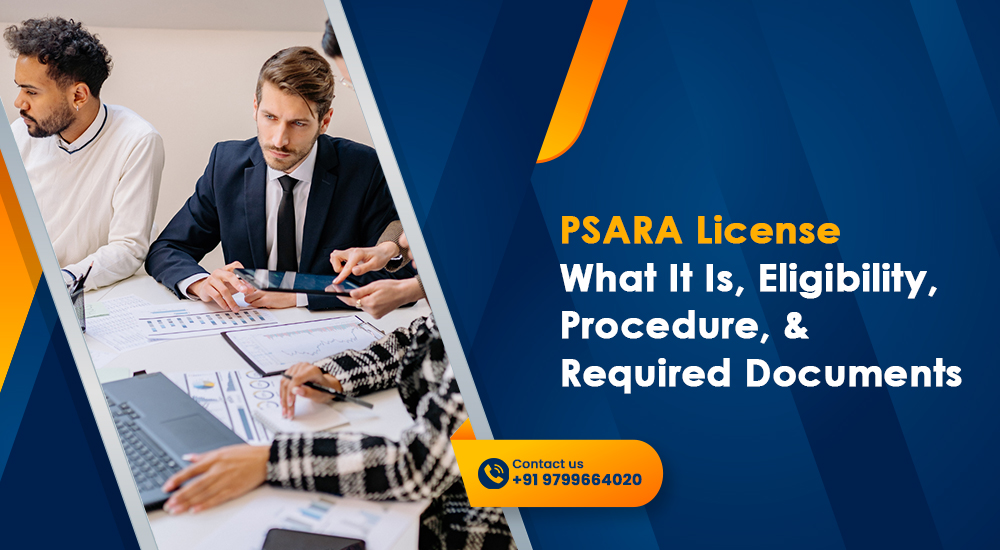Most individuals and businesses face issues regarding security in the modern fast-moving world. As the demand for such security services increases, their regulation has become imperative. PSARA (Private Security Agencies Regulation Act) License is just one of those regulations by which a private security agency requires a license. Let us fully discuss this PSARA License form, eligibility criteria, application procedure, and required documents.
PSARA License is the license for the Private Security Agencies Regulation Act. This act was brought in 2005 to regulate the functioning of private security agencies all over India. The PSARA License ensures that security agencies function in a legal framework. Hence, provide reliable and professional services. This regulation not only safeguards the interests of clients but also sets a standard for the conduct of security personnel.
The PSARA License works as a backbone for private security in India. Now, here are a few reasons that highlight the importance of the same:
The PSARA License is important for setting a legal status for private security agencies. It safeguards the customers because they deal with authenticated and registered entities instead of dealing with unregistered and fraudulent service providers. The legitimacy creates trust between clients and security service providers.
Agencies registered under the PSARA License have to adhere to certain operational standards as well as training standards. Thus, this framework depicts the high professional caliber in the profession, where security personnel are well-trained and competent enough to handle a variety of scenarios.
The licensing process involves all-around background checks and review of the owners and agents of the agency. This factor is a consumer protection mechanism through which security personnel do not have criminal backgrounds, keeping clients and the public safe at large.
Licensed agencies are liable for their services and actions. By misbehaving or failing to provide services as per promises, the client has a legal platform to address such grievances. This makes service standards high.
With increasing demand for security services, the PSARA License has helped regulate the market and weed out unfit service providers from entering the industry. The regulation leads to healthy competition between more reliable businesses operating on fairgrounds, which eventually benefits the industry as well as the consumers.
Licensed agencies require all their personnel to undergo a continuous training and skill upgrading process. At SOSEC India, we offer tailored security solutions, office management, and staffing services, all backed by highly trained, PSARA-compliant professionals for unparalleled excellence.
The licensing framework encourages good ethical practices from security providers. With guidelines and rules set out. The PSARA License encourages agencies to operate honestly and responsibly – requirements in building a good reputation within the community.
If an agency qualifies for an eligibility requirement, a PSARA License initiates its licensure application process. Processes that constitute a PSARA License are numerous:
The agencies intending to acquire a PSARA License must meet some basic eligibility criteria. The core eligibility criteria ensure that the necessary security services are provided only by capable and trustworthy entities. Here are the key eligibility requirements:
The applicant should be at least 21 years of age. This is because the age requirement would ensure that the individual is mature enough and understands what it means to run a security agency.
While there are no strict mandates for education, relevant qualifications could be helpful. Relevant university degrees in fields such as security management, criminology, or law might help the applicant better understand the security landscape and hence increase his credibility.
Applicants should have previous experience in the security service industry. Such experience may be in a law-enforcement role, military service, or any other prior position held within a security agency. Such prior experience serves to establish competency in performing security-related operations.
Proof of financial stability should be given to the applicant so that it will show that, indeed, the agency can sustain its operations. This would mean that it would have to provide bank statements or other documents of its financial records, or even other forms of papers showing how well it can handle its resources.
A clean criminal history shall be required of all applicants. This requirement ensures that there are no past convictions involving individuals associated with the agency, which would compromise them in providing secure services.
Other than the general PSARA guidelines, states may have another set of regulations specific to them. This would make sure the agency was covering the statutory requirements in the area it was operating from.
The management and staff of the agency need to demonstrate ethics in any business practice. The bottom line is to uphold professionalism and integrity that ensures one maintains the trust of his clients and standards in the industry.

To successfully apply for a PSARA License, private security agencies need to submit a comprehensive set of documents. These documents will prove the legitimacy, competence, and financial stability of the agency. Here’s a detailed list of the required documents:
PSARA License is an important aspect of the regulation of private security agencies in India. Elaborating eligibility criteria, application procedures, and the list of documents required to open a security agency is crucial for those who are interested in opening security agencies.
Whether you need security for your business, event, or personal safety, choosing a PSARA-compliant agency like SOSEC India ensures that you are getting top-notch services backed by legal and regulatory frameworks.
The first step towards professional excellence and compliance concerning entering the private security sector is the PSARA License. PSARA regulations are very important to the ever-changing scene of security services. So, get ready and prepare your agency for all of this that the regulation deems appropriate for it!
The PSARA (Private Security Agencies Regulation Act) mandates that licensed agencies must train security personnel to ensure effective job performance. The PSARA License, essential for legally operating a security agency, is valid for five years and can be renewed upon expiration if eligibility is maintained. Operating without this license is illegal and can result in penalties and business shutdown. The licensing process typically takes a few weeks to two months, depending on the state and application completeness.
Licensed agencies are required to provide job-related training to security guards, ensuring they perform effectively.
To apply, submit the PSARA License Application form with necessary documents to the Director General of Police or an equivalent state authority where operations are planned.
The PSARA License is valid for five years. It can be renewed, provided the agency meets the eligibility requirements at the time of renewal.
Running a security agency without this license is illegal, carrying risks of penalties, fines, and agency closure. It also damages credibility and client trust.
The time for approval varies across states, generally taking a few weeks to two months based on application completeness and the efficiency of the relevant authorities.








